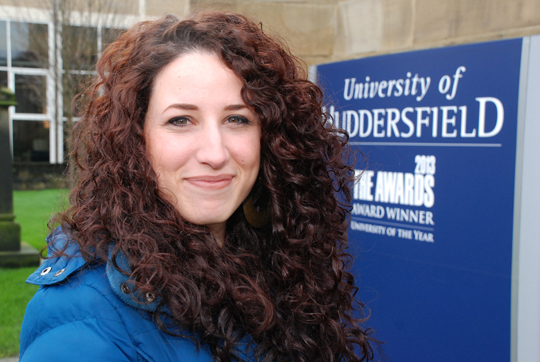Investigative psychologist looks for truth behind the polygraph

Fri, 29 Jan 2016 15:33:00 GMT
“...ultimately, I hope my findings on the polygraph machine will produce tangible evidence on the machine’s capabilities...”
THERE are many conflicting research studies surrounding the validity of the polygraph machine or as it is otherwise known the ‘lie detector’. Now, a PhD candidate in Investigative Psychology at the University of Huddersfield, is cutting through the controversy in a bid to discover just how useful the polygraph can be and its potential applications beyond police work.Anita Fumagalli, 26 years of age and from Sicily in Italy, is in the beginning of the second year of her self-funded PhD. At present, two hundred individuals have taken part in Anita’s research which is supervised by Dr John Synnott of the world-renowned International Research Centre for Investigative Psychology (IRCIP).
Dr Synnott says Anita’s research is forming the origins of a dedicated programme of study at the IRCIP into investigating the effectiveness of the polygraph as an investigative tool.
“The distinction must be made clear,” said Dr Synnott. “The polygraph does not detect deception, it merely detects changes in physiological output, which are considered to be indicative of deception and this will be shown in Anita’s research.”
The Centre has its very own polygraph machine that Anita is using to conduct her research. For an experiment, an individual is connected to the ‘lie detector’ and their reactions are analysed when answering a series of questions. Tests are ongoing and Anita will pull together the results of these studies in her thesis, in addition to a careful analysis of the literature, which is due for completion at the end of 2017.
“Ultimately, I hope my findings on the polygraph machine will produce tangible evidence on the machine’s capabilities,” said Anita.
Once Anita has obtained her PhD, she hopes to be in the position to carry on with future research and to stay on in academia.
“I have been teaching psychology to undergraduates for extra funding while I am doing my PhD,” said Anita. “I really enjoy interacting with the students and I would love to continue this as a career,” she added.
The Italian postgraduate has come a long way from when she first arrived in England in 2013. Anita’s understanding of spoken English was minimal, but to her credit, a mere six-months later, she was talking and writing the language fluently whilst studying the University’s MSc in Investigative Psychology.
In addition to her curricular activities, Anita is the President of the Italian Student Society, an annual role which began in September 2015. This involves greeting other new Italian students as they arrive and helping them integrate to student life in Huddersfield. The Society also takes part in the numerous student-led festivities taking place on campus throughout the year, including the highly-successful International Food and Culture Festivals.







